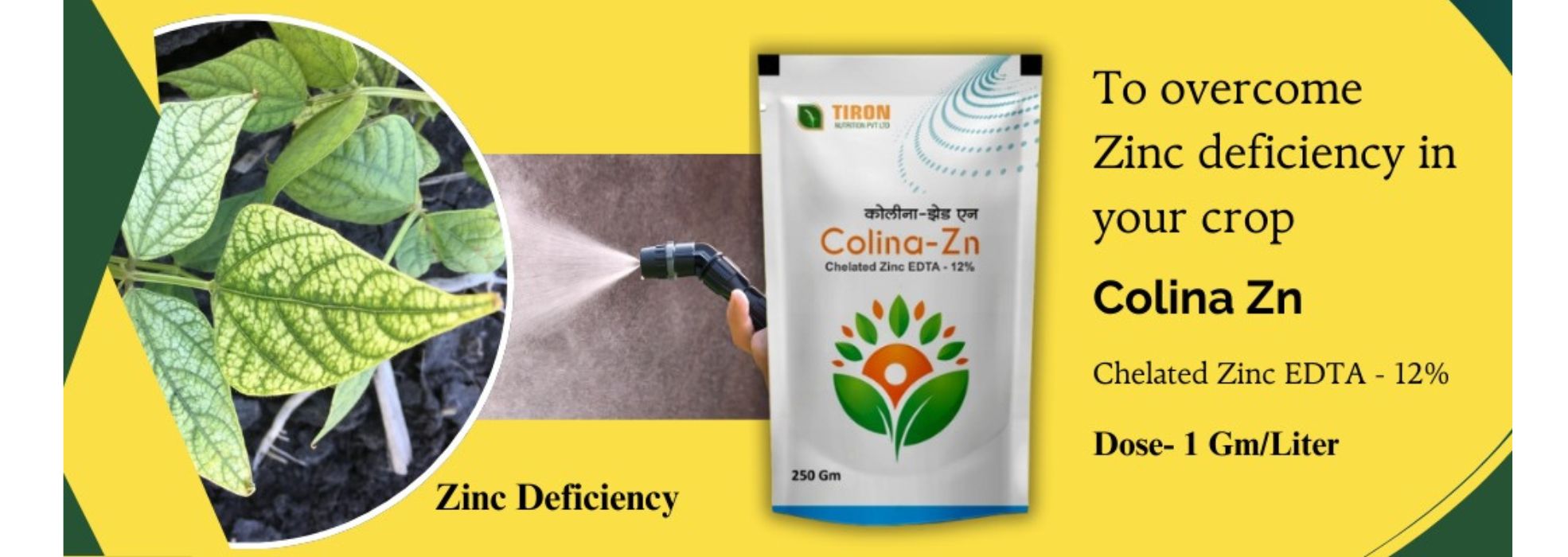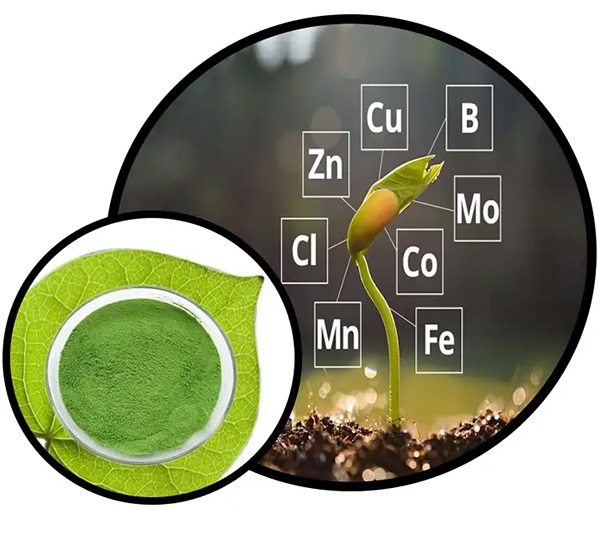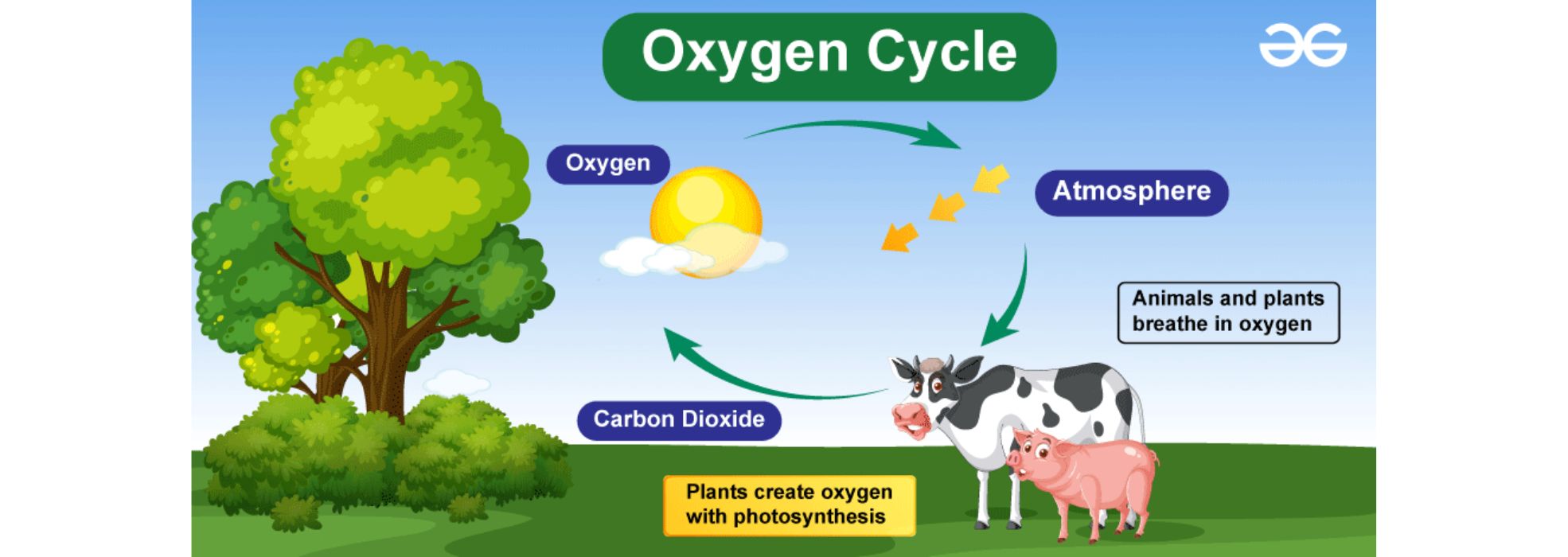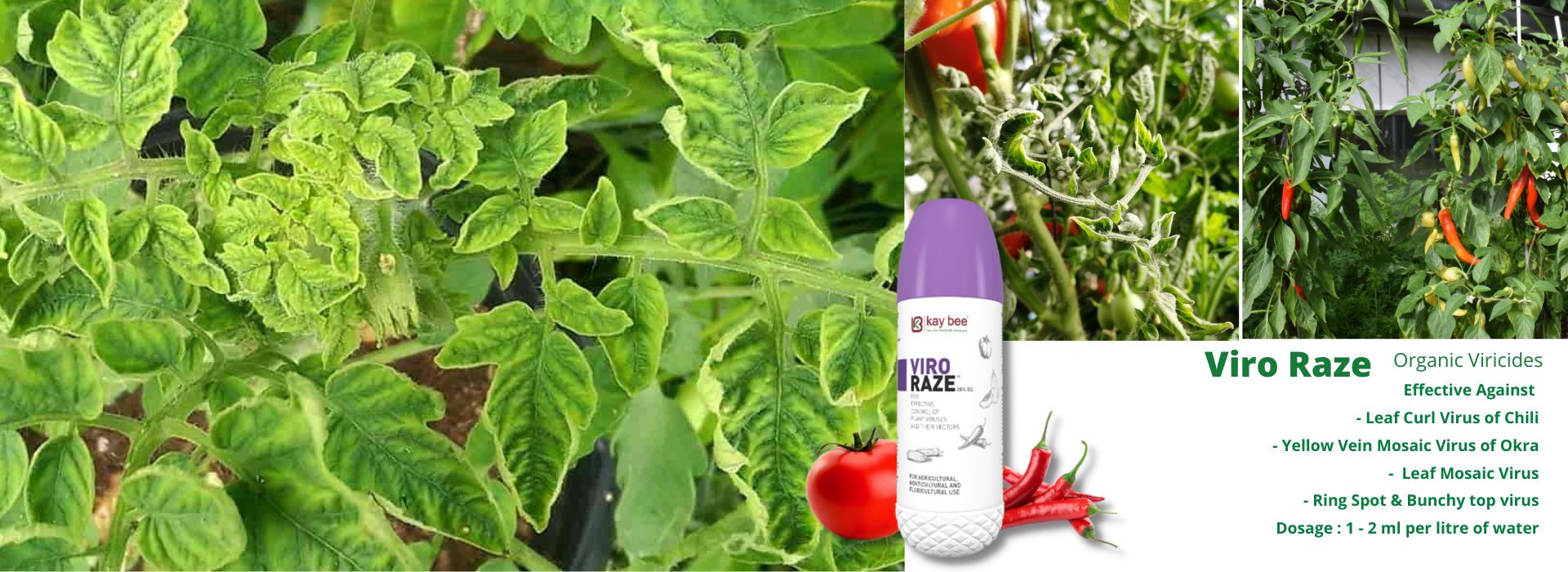Understanding Zinc Deficiency in Plants: Causes, Symptoms, and Solutions
June 13, 2024The world of gardening and
agriculture, the health of your plants is paramount. One often overlooked but
essential micronutrient for plant health is zinc. Despite being required in
tiny amounts, zinc plays a crucial role in various plant functions. When plants
suffer from zinc deficiency, their growth and productivity can be severely
impacted. In this blog, we'll explore the causes, symptoms, and solutions for
zinc deficiency in plants.
What is Zinc and Why is it
Important?
Zinc (Zn) is a vital
micronutrient that contributes to several plant physiological functions,
including:
Enzyme Activation: Zinc is a
component of many enzymes that drive various biochemical reactions.
Protein Synthesis: It aids in the
formation of proteins and growth hormones.
Chlorophyll Production: Zinc is
crucial for chlorophyll production, which is necessary for photosynthesis.
Carbohydrate Metabolism: It plays
a role in carbohydrate metabolism, influencing energy production and storage.
Causes of Zinc Deficiency
Zinc deficiency in plants can be
attributed to several factors:
Soil pH: High soil pH (alkaline
conditions) can reduce zinc availability. Zinc becomes less soluble in alkaline
soils, making it difficult for plants to absorb.
Soil Type: Sandy soils or soils
with high phosphorus levels often have low zinc availability.
Organic Matter: Low levels of
organic matter in soil can result in zinc deficiency.
Heavy Rainfall: Excessive
rainfall can leach zinc away from the root zone.
Plant Species: Different plant
species have varying zinc requirements. Crops like corn, beans, and citrus are
more susceptible to zinc deficiency.
Symptoms of Zinc Deficiency
Identifying zinc deficiency in
plants can be challenging as symptoms may resemble other nutrient deficiencies.
Common signs include:
Stunted Growth: Plants exhibit
reduced height and shorter internodes.
Chlorosis: Younger leaves show
yellowing between veins (interveinal chlorosis) while veins remain green.
Leaf Deformities: Leaves may be
small, distorted, or rosette-shaped.
Delayed Maturity: Crops may take
longer to mature and produce lower yields.
Fruit Abnormalities: Poor fruit
set and development, with fruits being small and misshapen.
Diagnosing Zinc Deficiency
To accurately diagnose zinc deficiency, soil, and plant tissue tests are recommended. Soil tests will
measure the zinc levels available in the soil, while tissue tests will indicate
the zinc concentration within the plant. This dual approach helps in confirming
zinc deficiency and ruling out other potential nutrient issues.
Solutions for Zinc Deficiency
Once zinc deficiency is
identified, several corrective measures can be taken:
Soil Amendments: Apply
zinc-containing fertilizers such as zinc sulfate (ZnSO4) or chelated zinc.
These can be applied directly to the soil or as foliar sprays.
pH Adjustment: If soil pH is too
high, applying sulfur or organic matter can help lower it, improving zinc
availability.
Organic Matter Addition:
Incorporating compost or manure increases soil organic matter, which can
enhance zinc availability.
Crop Rotation: Rotating crops
with those less susceptible to zinc deficiency can help maintain soil health.
Monitoring and Maintenance:
Regular soil and tissue testing can help monitor zinc levels and ensure ongoing
plant health.
Preventing Zinc Deficiency
Preventing zinc deficiency
involves proactive soil and plant management:
Balanced Fertilization: Avoid
over-application of phosphorus fertilizers, which can inhibit zinc uptake.
Soil Health: Maintain good soil
structure and organic matter levels through the use of cover crops, mulches,
and compost.
Appropriate Irrigation: Manage
irrigation to prevent leaching in sandy soils and waterlogging in clay soils.
Conclusion
Zinc deficiency, though often
overlooked, can have significant impacts on plant health and crop yield. By
understanding the causes, recognizing the symptoms, and implementing effective
solutions, gardeners and farmers can ensure their plants receive the essential
nutrients they need to thrive. Regular soil and plant tissue testing, combined
with balanced fertilization and good soil management practices, are key to
preventing and correcting zinc deficiency in plants By staying vigilant and
proactive, you can cultivate a healthier, more productive garden or farm. Happy
planting
At krishibazaar.in, you can find and buy various agricultural
products. For agricultural guidance on selecting the most suitable products for
your crops, please contact or WhatsApp at +917887880887






Guest reviews
No reviews found for this Blog